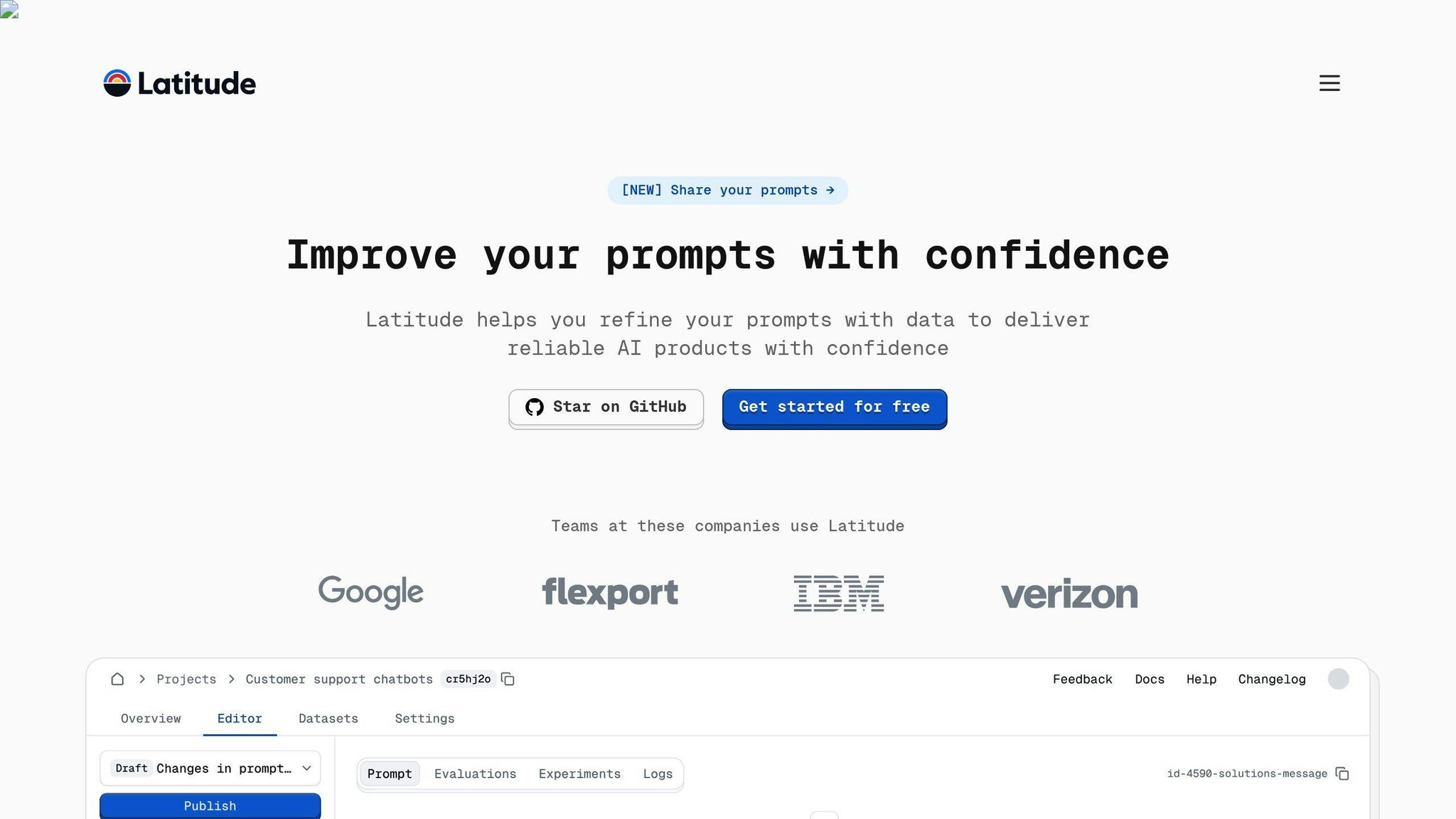Prompt Engineer vs. Domain Expert: Role Comparison
Explore the vital roles of prompt engineers and domain experts in optimizing AI systems, ensuring accuracy and relevance in real-world applications.

Prompt engineers focus on crafting and optimizing instructions for large language models (LLMs), ensuring accurate AI responses. Domain experts validate these outputs with their specialized knowledge, ensuring they meet industry standards and real-world requirements. Together, these roles create reliable, effective AI systems.
Key Roles and Responsibilities:
- Prompt Engineers:
- Design and test prompts to refine AI interactions.
- Analyze performance metrics and adjust prompts.
- Collaborate with domain experts for feedback.
- Domain Experts:
- Review AI outputs for accuracy and relevance.
- Update AI systems with the latest field knowledge.
- Ensure compliance with ethical and legal standards.
Quick Comparison:
| Criteria | Prompt Engineers | Domain Experts |
|---|---|---|
| Focus | Optimizing AI prompts | Validating AI outputs |
| Skills Needed | NLP, Python, creative problem-solving | Deep field knowledge, communication |
| Key Tasks | Testing, refining, and documenting prompts | Reviewing, updating, and ensuring accuracy |
| Collaboration Role | Improve AI performance with technical input | Provide specialized insights |
This partnership ensures LLMs are both technically sound and practically useful, driving advancements in AI across industries.
Responsibilities of Prompt Engineers and Domain Experts
Prompt Engineers: Crafting and Optimizing Prompts
Prompt engineers are the technical minds behind how large language models (LLMs) interact with users. Their main job is to design and fine-tune the instructions, or prompts, that guide AI responses. Think of them as translators between human intent and machine understanding.
They use methods like chain-of-thought reasoning and few-shot learning to improve how LLMs process information. For example, in medical chatbots, they carefully balance everyday language with precise clinical terms to ensure clarity and accuracy.
"The role of a prompt engineer is to act as a bridge between human intent and machine capability, constantly refining the language that guides AI models." - Dr. Ethan Mollick, Professor of Management, Wharton School, University of Pennsylvania
Their key responsibilities include:
- Running A/B tests to evaluate how well prompts perform
- Documenting best practices and maintaining a library of effective prompts
- Tracking LLM performance metrics to identify areas for improvement
- Adjusting prompts based on feedback from domain experts
This process is highly collaborative, relying on domain experts to identify gaps and provide specialized insights.
Domain Experts: Validating LLM Outputs
Domain experts ensure that LLM outputs are accurate and align with the standards of their respective fields. They play a crucial role in maintaining reliability, ensuring the AI's responses meet industry regulations and best practices.
A great example of this collaboration comes from a June 2023 project where OpenAI's GPT-4 team worked with medical experts from Johns Hopkins University. Oncologists reviewed and refined over 10,000 medical prompts, which led to a 28% improvement in accuracy for cancer-related queries.
Domain experts focus on:
- Reviewing content to ensure accuracy and relevance
- Updating the AI with the latest industry knowledge
- Identifying edge cases to make the model more robust
- Checking outputs for compliance with legal and ethical standards
Together, prompt engineers and domain experts create a workflow that ensures LLMs are both effective and reliable. This partnership is key to advancing AI applications across industries.
Skills Needed for Prompt Engineers and Domain Experts
Prompt Engineers: Technical Skills and Creativity
Prompt engineers blend technical know-how with creative problem-solving. They need a solid grasp of artificial intelligence and natural language processing (NLP), especially with transformer models like GPT. Proficiency in programming - primarily Python - is crucial for building and testing effective prompts.
"The most effective prompt engineers combine a deep understanding of AI models with the ability to think creatively about problem-solving." - Dr. Oren Etzioni, CEO of Allen Institute for AI
Key skills include:
- Technical: AI and NLP basics, Python programming, data analysis
- Creative: Reframing problems, recognizing patterns, and drawing analogies
This mix of skills allows prompt engineers to bridge human intent and machine understanding. They also need sharp analytical thinking and a systematic approach to testing. Their work often involves optimizing performance and addressing the limitations of language models while keeping computations efficient.
Domain Experts: Subject Matter Expertise
Domain experts focus on providing the context needed for accurate AI outputs. Their expertise often comes from years of experience, advanced education, and staying updated with industry trends.
"Domain experts bring invaluable real-world context to AI development, ensuring that models are not just technically sound but also practically useful." - Fei-Fei Li, Professor of Computer Science at Stanford University
A 2023 survey by AI21 Labs found that 68% of companies using AI identified the need to combine domain expertise with prompt engineering skills. Domain experts need:
- Deep field knowledge: Understanding industry standards and best practices
- Strong communication: Simplifying complex ideas for AI systems
- Organizational skills: Structuring information for both human and AI use
To stay relevant, domain experts engage with industry updates through conferences and journals. They also need a basic understanding of AI to work seamlessly with technical teams.
As AI evolves, both roles demand a mix of skills across disciplines, emphasizing continuous learning and adaptability.
Collaboration Between Roles
Prompt engineers and domain experts bring different strengths to the table, but their best work happens when they collaborate in a structured way.
How Teamwork Brings Out the Best
When collaboration is well-organized, both roles can shine. Teams often succeed by focusing on:
- Regular knowledge-sharing sessions: These help bridge gaps in expertise and align goals.
- Clear documentation: Keeping track of decisions, iterations, and feedback ensures nothing gets lost.
- Feedback systems: Structured forms allow domain experts to provide actionable input.
- Shared learning: Building an understanding of each other's fields fosters better cooperation.
Tools That Make Collaboration Easier: Latitude

Open-source platforms like Latitude make teamwork smoother and more effective.
Latitude offers shared workspaces for real-time feedback, version control to track changes, and annotation tools for marking up outputs directly. For example, in finance, analysts can comment on generated reports while prompt engineers adjust them on the spot. This setup mirrors earlier successes in healthcare and proves how integrated tools can enhance collaboration across industries.
Challenges and Ethics
Collaboration can spark progress, but it also comes with practical hurdles and ethical concerns. Teams need to tackle these issues together, ensuring accountability on all fronts.
Communication and Workflow Challenges
One of the biggest challenges in teamwork between prompt engineers and domain experts is the language barrier. Prompt engineers often rely on AI-related terms and algorithmic concepts, while domain experts use jargon specific to their fields. This disconnect can lead to confusion and slow down workflows.
Here’s how organizations are addressing these issues:
- Shared glossaries and visual aids to bridge language gaps.
- Cross-functional meetings to align goals and expectations.
- Documentation platforms to centralize and share information effectively.
- Dedicated review sessions to speed up iteration and refine outputs.
Ethical Considerations in Prompt Design
When developing large language models (LLMs), ethical concerns must be front and center. With cross-functional teams achieving up to 38% accuracy improvements, it's clear that collaboration plays a role in addressing these risks.
Key ethical issues include:
Bias Mitigation: Regular bias audits and diverse review panels are essential to avoid reinforcing stereotypes or prejudices. This is especially critical in fields like healthcare and finance, where errors can have serious consequences.
Transparency and Accountability: Clear protocols are a must. These should include:
- Documenting every decision made during prompt design.
- Assigning responsibility for LLM-generated outputs.
- Ensuring human oversight for outputs that have high stakes.
- Setting up monitoring systems to catch and address ethical concerns.
Privacy Protection: Teams should build on existing documentation systems by enforcing strict data anonymization practices and securing personal information at every stage.
Future Trends and Role Evolution
As AI systems become more specialized, the roles of prompt engineers and domain experts are shifting in exciting ways. Here's how these roles are evolving and what it means for the future:
Tools for Future Collaboration
New platforms are changing the way prompt engineers and domain experts collaborate. These tools are designed to bridge the gap between technical and domain expertise by offering features like context-aware systems, real-time collaboration, and automated validation workflows. These advancements make teamwork smoother and more effective.
Expanding Role of Domain Experts
Domain experts are no longer just advisors - they are becoming essential contributors to AI system development.
"Domain experts will increasingly steer AI's development as applications specialize." - Andrew Ng
Their responsibilities now include:
- System Co-Design: Domain experts are involved in shaping AI systems from the ground up. For example, medical professionals have successfully co-designed oncology-focused AI tools, ensuring these systems meet practical needs while avoiding costly revisions later.
- Ethical Oversight: As AI applications grow, ethical considerations are more critical than ever. Experts now lead compliance efforts, ensuring systems meet industry-specific regulations and ethical standards. This approach has already shown improvements, such as a 38% boost in accuracy through cross-functional collaboration.
- Knowledge Integration: Experts are finding structured ways to embed their knowledge into AI systems while safeguarding sensitive data. This ensures the systems remain both effective and secure.
These shifts are paving the way for hybrid roles that combine technical skills with deep domain expertise. Companies are adapting by creating specialized training programs and new workflows to fully leverage the unique strengths of both prompt engineers and domain experts in AI development.
Comparing Roles: Prompt Engineers and Domain Experts
Prompt engineers and domain experts work hand-in-hand to develop effective large language model (LLM) solutions. Their collaboration combines technical expertise with field-specific knowledge, ensuring AI systems are both efficient and practical.
"The synergy between prompt engineers and domain experts is what truly unlocks the potential of large language models in real-world applications." - Dr. Emily Chen, AI Research Director at Stanford University
Prompt engineers specialize in refining AI prompts for better interaction, while domain experts focus on maintaining accuracy and context within their area of expertise. Together, they create well-rounded AI outputs that address both technical and practical needs.
Organizations that embrace this partnership are better positioned to create impactful AI solutions.
FAQs
What is the role of a prompt engineer?
A prompt engineer is responsible for crafting and fine-tuning inputs for large language models (LLMs) to ensure they deliver accurate and relevant outputs. Their work helps AI systems meet specific needs by tailoring responses to specialized tasks.
Prompt engineers often work closely with technical teams and domain experts, focusing on tasks such as:
- Designing and refining prompts for particular use cases
- Implementing and integrating AI systems
- Conducting quality assurance and validation
- Collaborating with experts across different fields
This role combines technical knowledge in natural language processing and machine learning with creative problem-solving. As AI continues to advance, prompt engineers must align technical goals with industry standards and ethical considerations.

